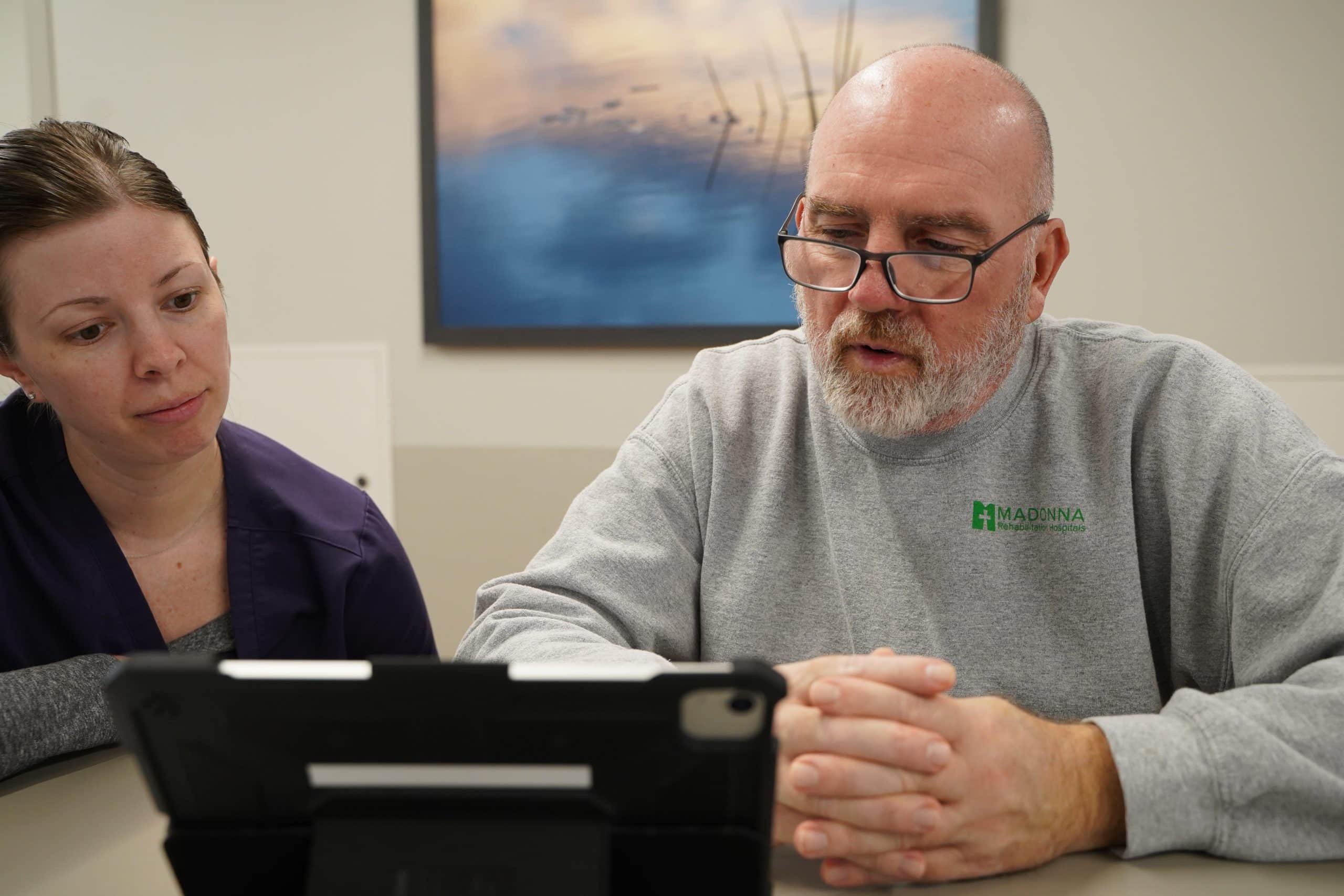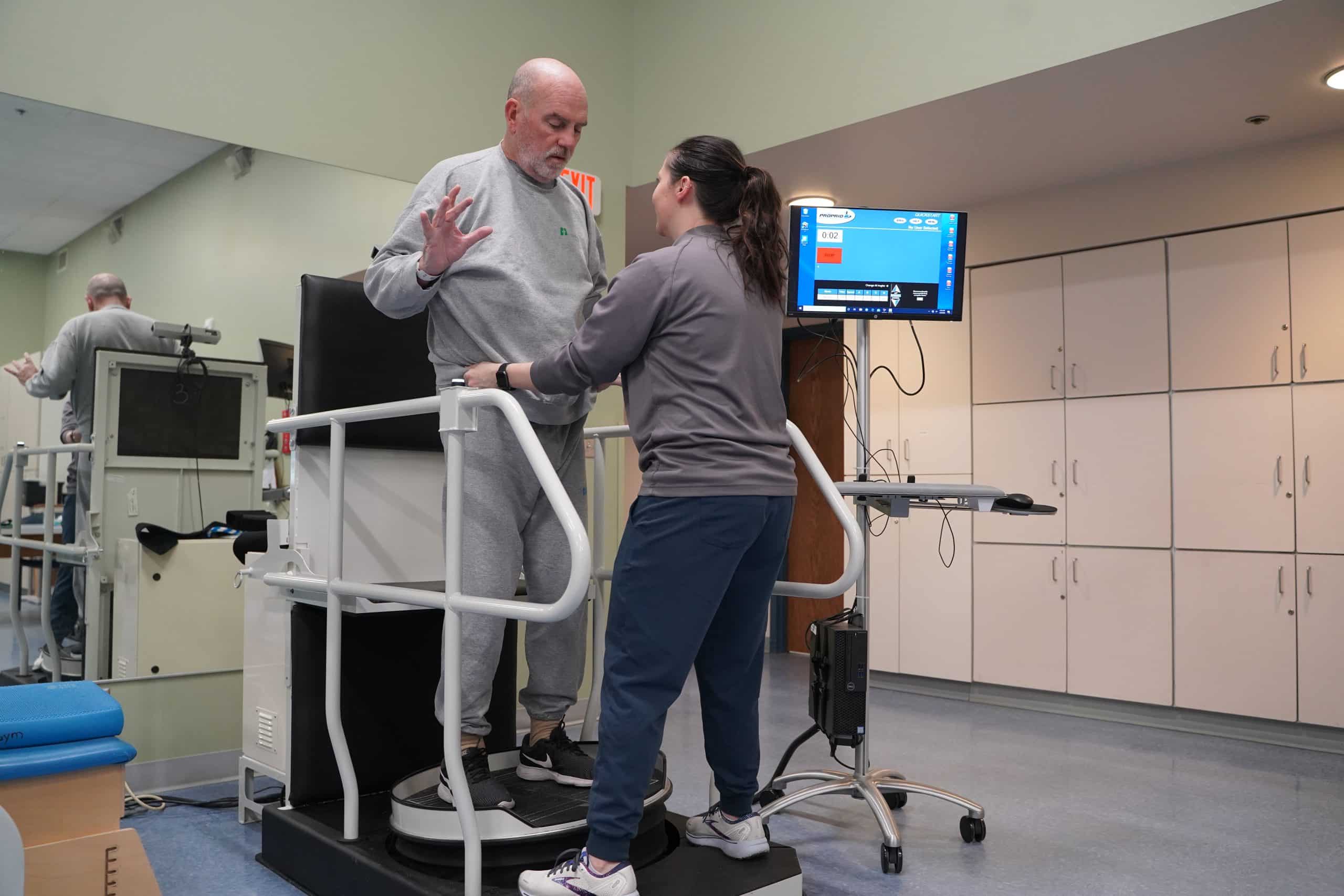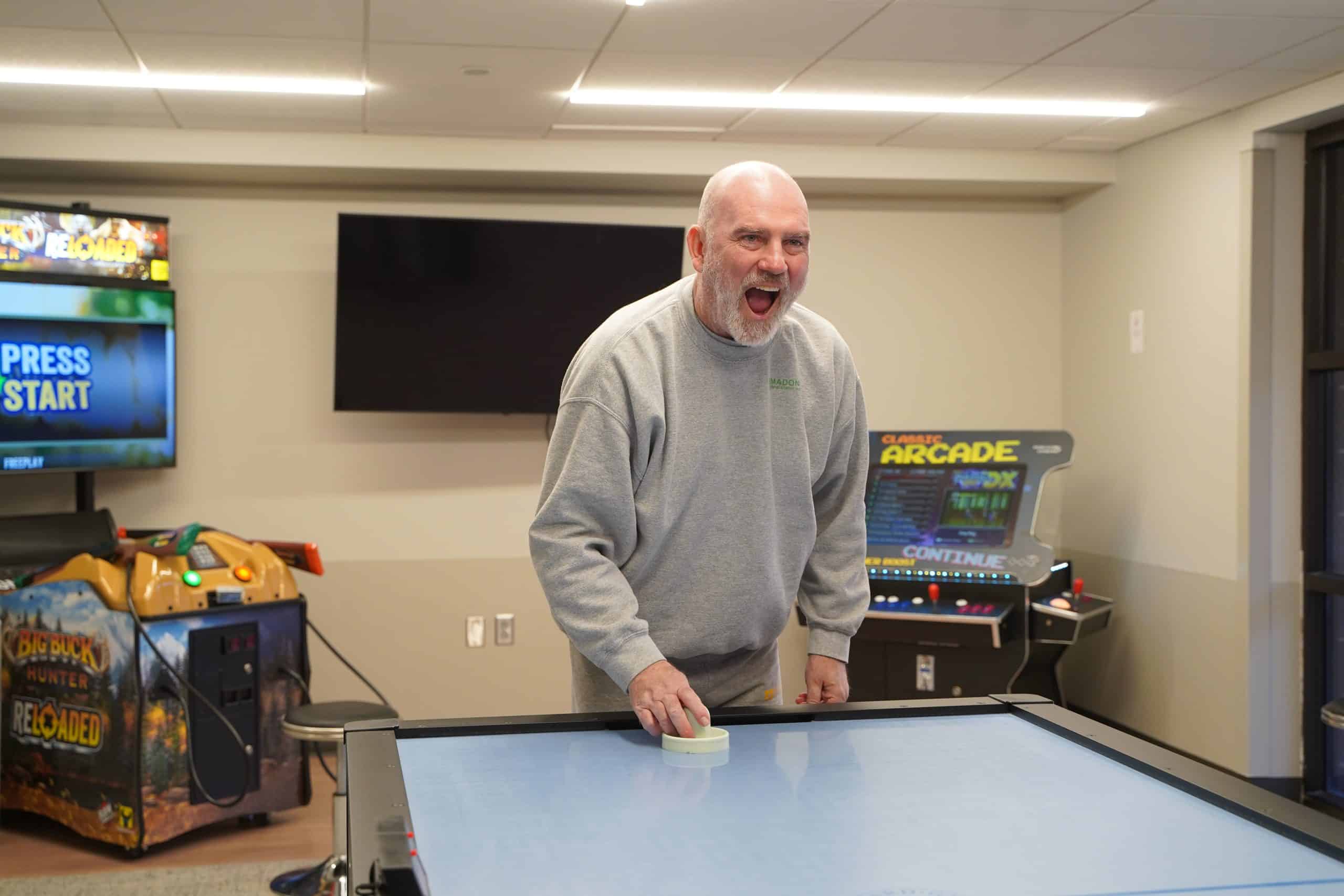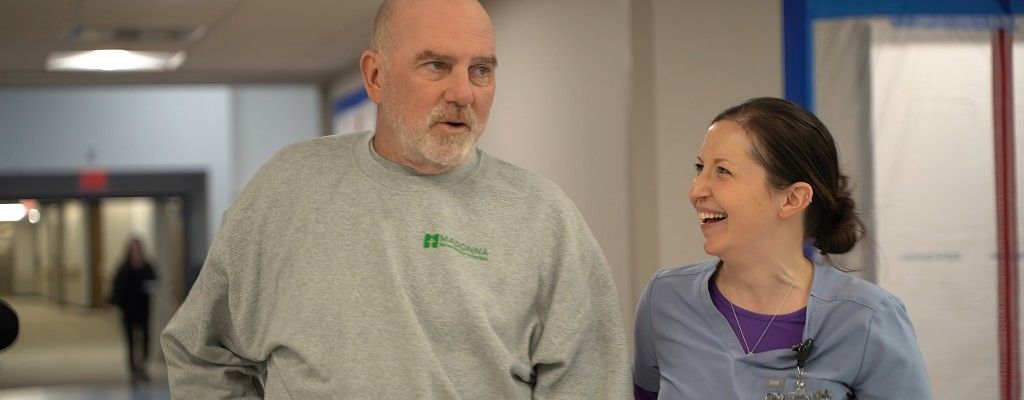Scott Vampola thrives on the energy and intensity teens bring to his job as a Lincoln Southwest PE teacher and Lincoln Southeast varsity football coach.
“I like the interaction with the high school kids,” Scott said. “They keep me guessing. I don’t know what the next day will bring.”
But in late January, his family found him unresponsive and he sustained multiple seizures. Scott came to Madonna Rehabilitation Hospitals’ specialized brain injury program with an anoxic brain injury, needing assistance with almost everything.
Early on, Scott’s fatigue and the newfound difficulty of performing everyday tasks left him reluctant and frustrated. He felt he was no match for the drills and instruction his care team developed for him.
“Scott, in the beginning, was a little bit more difficult to motivate and he was always tired,” Nicole Ford, PT, DPT, CBIS, Madonna physical therapist said. “Physically, his challenges were his balance. He needed a walker to help him walk. Cognition was difficult; therefore, processing was a little bit slower. When he would try to verbalize answers, sometimes his words were a little bit mumbled, and he had difficulty communicating, which was also frustrating for him.”
With cognition and communication as a point of emphasis, Scott’s speech therapist focused on strategies to help Scott formulate sentences and his memory.
“When Scott first arrived, he was not able to formulate intelligible words, and had difficulty completing simple reading as well as writing tasks, so Initially our focus was finding an effective form of communication for Scott,” Rachel Lindstedt, M.S. CCC-SLP, CBIS, Madonna Speech-Language Pathologist said. “He quickly progressed from conveying just two to three word phrases, to full sentences, to full conversations. His speech remained dysarthric throughout his stay but we worked on strategies to compensate for this. We also initiated compensatory strategies to improve his recall of daily events and new information and increased difficulty of those tasks as he progressed.”
His care team recognized that as a coach and a teacher, Scott had it in him to be physically active, they just needed to remind his body how to do it.
“We did a stint on the [Lokomat] body weight support treadmill when he first got here, as more of a safety piece because I was challenging increasing speed and giving him obstacles to step over,” Ford said. “Then, as we started just ground walking, it was increasing speed, using weights on his ankles, kind of that high-intensity gait training that we’d been working on. We also used the Proprio 4000 balance machine to challenge his balance, some of that higher-level, uneven surfaces and having him do multiple things at once to challenge his inability to hold on to the rails while playing catch.”



As the science of medical rehabilitation evolves, Madonna continues to invest in research, education and training to support its patients. Scott’s care team also customized his treatment plan, based on evidence-based research, which shows that the challenge of high-intensity gait training allows for quicker and more aggressive treatment, leading to better success.
“Personally, we are seeing better outcomes,” Ryan Knight, PT, DPT, Madonna physical therapist said. “This is in line with current research, which overwhelmingly demonstrates that the HIGT intervention can achieve improved outcomes for restoring walking with our patient populations when compared to outcomes achieved with our more ‘traditional’ suite of interventions.”
With each new step or skill he remastered, his confidence level increased and his personality returned.
“As he started seeing more progress and he was getting more independence, he really started to come alive,” Ford said. “He was having more fun in sessions and overall, he made excellent progress as far as mobility, but also in cognition, motivation and personality. It all really came to life toward the end.”
And with that also came an appreciation for the process and the team that coached him through.
“My care team has been awesome,” Scott said. “They pushed me in the right way to where I accepted their challenge, and they made me appreciate the daily struggles to where I can be helpful to myself and others.”
After a month, Scott returned home independent. He will return to Madonna for intense outpatient therapy, with the goal of returning to the gym and the field in the fall.





